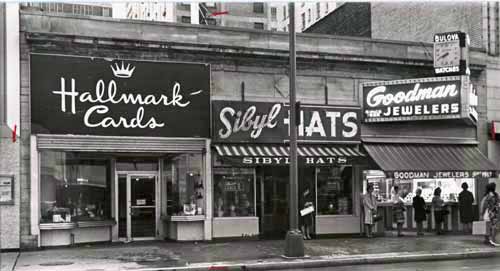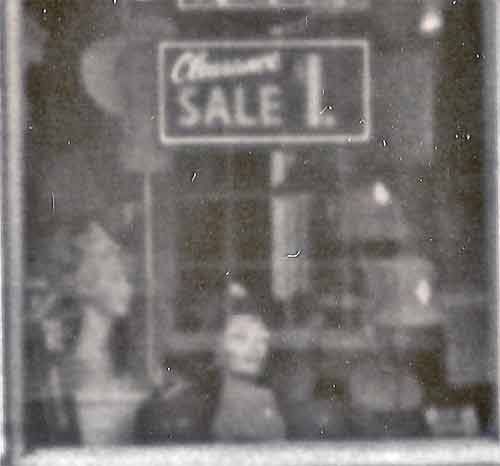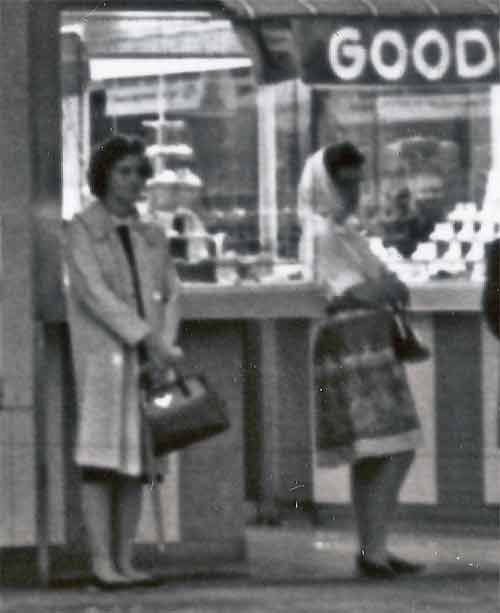
|
|
Low ebb day, damp and dim. I liked it, but it made me want to get into a cave. So I did. Worked from home, since I still can’t get the *$#($% wireless working at my desk, so I can’t use the laptop. I have to go elsewhere and plug into a cable. I went down to the creek to take some pictures of the graffiti for a buzz post. It looks nice from this angle:
The miscreants have tagged all the posts and handrails, though. Fargin’ vandals. Speaking of pictures – and I know I’ve been posting a lot (I’m a visually oriented person, or VOP. It must be genetic; same with Gnat. In fact she got in trouble in school today for drawing while she should have been practicing cursive writing. She was abashed about that, and I explained that she has to do her work before doing the fun stuff. [She had invented a new online site called KidWorld and was populating it with characters and activities when busted.] There's more to this story; developing, as they say. Oh, right – that was a parenthetical remark. Closing it in 3 . . . 2 . . . 1) but I have so many interesting things at hand. Like this:
Granted, this is a broad definition of "interesting," but bear with me. It's A commercial building, long gone. I scanned it at 1 billion dpi or so – an act that prompts the scanner software to warn it will take a long time and I really don’t want to do this – and started pulling out details. The original photo is seven inches long. The time is 7:40 PM, August 24th. It’s 1964. Everything in this picture is gone, replaced by the hideous soul-sucking bunker-uber-alles aggregate-clad City Center nightmare. About which I have no opinion. Detail number one:
Hats, one dollar! Sibyl hats had more than one location, it seems. (Note: that link goes to a Wisconsin History page where you could lose a few hours; this page starts a series of nifty old store window displays.) Waiting for the bus:
Identities, and destinations, unknown. --
I am watching “Flags Of Our Fathers,” which I believed was a gritty, realistic, reverent account of the battle of Iwo Jima. It may yet become that. So far, aside from some horrifying battle sequences, it is movie about the cynical, callous exploitation of the famous flag-raising picture. Apparently every state-side government employee was a brittle, shallow, two-faced, glad-handing PR-minded ass who regarded soldiers as ignorant cattle. I also have the Japanese version of the movie, "Letters from Iwo Jima." I have this odd feeling it will concern itself very little with the issues raised in this movie. I have the feeling I’ll be hearing a lot about honor. I have the feeling that I will be informed that war is hell on everyone, and the enemy are human as well - two things that never occured to me. I do know that the state-side PR effort for WW2 was phony and false, because the way the movie lit the Andrews-Sisters wannabees and had them sing patriotic songs with exaggerated cheer tells me all I really needed to know. This strange stark contrast to the grim realities of war makes me question the premises of the war against fascism! Why, they're selling the war! The bond drives should have consisted of grim dour matrons urging a negotiated settlement to the strains of a Kurt Weill song. Anything's better than a perversely calculated ad campaign designed to elicit voluntary contributions. I’m well acquainted with the story behind the photo. What’s odd is how the movie seems to suggest it all happened in some peculiar incomprehensible manufactured Eurasia-Eastasia struggle. I’m sure there was a certain amount of calculation that went into the photo’s eventual fame, but the level of bitter, angry, barking empty cynicism is rather remarkable. It’s amusing to be lecture by Hollywood on the devious use of imagery, of course, but apparently it’s okay if the imagery is being used to disassemble the devious use. But might that be devious itself, depending on the intention? Later, having watched it all: A formless, repetitive mess. I get the idea: there are no heroes. Men fight for the men next to them, not abstract ideals. I get that last part. No one goes over the hill for the 7th Amendment. But a nation, a culture, fights for abstract ideals. You can make the case that the abstractions are lies or misguided artifacts of the time or the product or whatever you choose, but it’s still true. There’s no sense in this movie that World War Two was fought for any particular reason. It just was a thing that happened and some guys paid the price and the survivors were dragged out for an ad campaign. Here are some period radio clips to show the insidious depth of the propaganda effort. Spike Jones, then Orson Welles. At the end - and it does end, after more flashbacks and post-war disappointment narratives - there's a voiceover epilogue. “Maybe there are no such thing as heroes. Maybe there are just people like my dad.” Hmm. My dad left the middle of America to sail on the Pacific ocean and fight the war. He volunteered. He saw awful things. He was proud of his service; he never boasted; he never talked about it. But he knew he had been part of something important. He had taken his battle station and watched the men on his left and his right struck down by a Zero; he took the battle station the next time the klaxon sounded. It's what you did, of course, but does that make it less heroic? Unheroic? The movie revolves around an enigmatic call for the whereabouts of Iggy, a friend of one of the narrator’s fathers. Eventually they find him in a cave; the film does not show us what happened to him. We see the sad reaction on the face of the soldier who finds the body. You have to consult book on which the movie was based to get the details Eastwood declined to reveal: "Both his arms were fractured," Langley said. "They just hung there there like arms on a broken doll. He had been bayoneted repeatedly. The back of his head had been smashed in." From eyewitness accounts: Other eyewitness reports further indicated that Ignatowski had been tortured in the cave by the Japanese for three days, during which time they also cut out his eyes, cut off his ears, smashed in his teeth, and cut off his genitalia and stuffed them into his mouth. (source) I’m curious to see if the companion film concerns itself with Ralph Ignatowski’s death or mutilation. The boomer soliloquy at the end continues, and explains why the men of the Greatest Generation were uncomfortable being called heroes: “Heroes are something we create. Something we need.” Well, yes. “If we wish to truly honor these men, we should remember them the way they really were.” That admirable sentiment would have more power if the movie hadn’t spend so much time remembering the men as pawns, drunks, naïfs, and victims. But I seem to be in the minority in my reaction. I’m sure Eastwood intended the movie to be respectful, but sometimes it seems like the second half of his career has been spent apologizing for the first half. “Maybe there are no such thing as heroes. Maybe there are just people like my dad.” The more I read that quote, the less I understand it. Maybe there are such things as heroes, in a very real and ordinary sense, in the sense of men who joined a cause that saved the world, and maybe they were just people like our fathers. Of course they didn’t want to be called heroes. As the movie reminds us: the real ones never do.
|
|||||||||||||||||||
...






